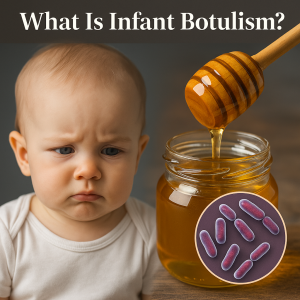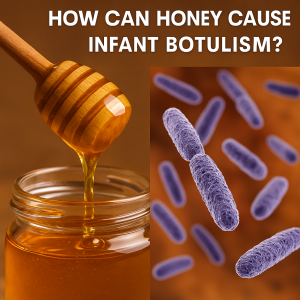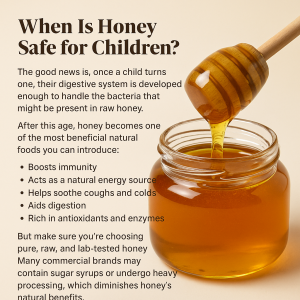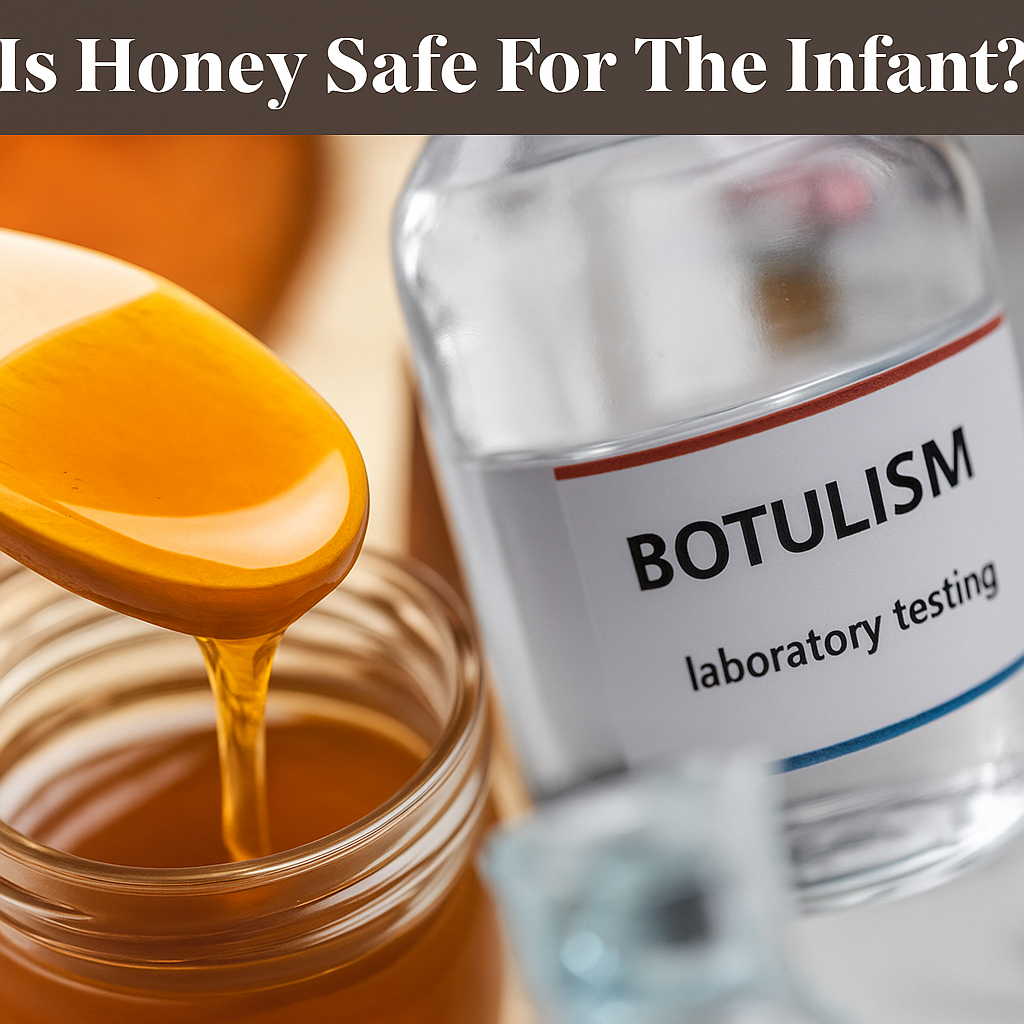In many cultures and religions, giving raw honey to newborns is a long-standing tradition—often used as a blessing, a remedy, or even a first food. But the real question remains: Is honey safe for babies under one year of age?
While honey is incredibly healthy for children and adults, it poses a serious risk for infants under 12 months. Medical experts and pediatricians strongly advise against feeding honey to babies below one year due to a rare but serious condition called infant botulism.
Let’s explore what infant botulism is, how honey can trigger it, and when it’s actually safe to introduce honey into a child’s diet.
🦠 What Is Infant Botulism?

Infant botulism is a rare yet serious form of food poisoning that affects babies younger than 12 months. It’s caused by a type of bacteria called Clostridium botulinum—which produces harmful spores that can release toxins in a baby’s immature digestive system.
These spores are commonly found in soil, dust, and—critically—raw, unpasteurized honey. While these spores are harmless to older children and adults with developed guts, they can thrive and multiply in a baby’s intestines, leading to a dangerous condition.
⚠️ How Can Honey Cause Infant Botulism?

Raw honey, especially when unpasteurized and unfiltered, may contain tiny traces of Clostridium botulinum spores. While these are generally safe for older individuals, infants lack the mature gut flora to fight them off.
Even a small amount of honey—whether used as a pacifier dip, a home remedy, or part of a traditional ceremony—can trigger infection in some cases.
This is why organizations like the World Health Organization (WHO), American Academy of Pediatrics (AAP), and Mayo Clinic strongly recommend avoiding honey for infants under 12 months.
👶 Symptoms of Infant Botulism After Eating Honey
If an infant consumes honey and contracts botulism, some early symptoms may include:
-
Constipation (often the first visible sign)
-
Floppy movements or weak muscle tone
-
Lethargy or poor responsiveness
-
Feeding difficulties
-
Weak crying or facial expression
These symptoms typically appear between 3 to 30 days after exposure. If you suspect your baby is showing these signs, especially after being fed honey or exposed to contaminated environments, seek immediate medical attention.
🌬️ Other Sources of Botulism Spores
Honey isn’t the only source of botulism spores. Infants can also get exposed through:
-
Contaminated soil
-
Dusty air (especially during construction or sandstorms)
-
Improperly canned foods
To reduce the risk, ensure your infant’s surroundings are clean, and avoid exposing them to dust or open soil, especially in the first year.
🍯 When Is Honey Safe for Children?

The good news is, once a child turns one, their digestive system is developed enough to handle the bacteria that might be present in raw honey. After this age, honey becomes one of the most beneficial natural foods you can introduce:
-
Boosts immunity
-
Acts as a natural energy source
-
Helps soothe coughs and colds
-
Aids digestion
-
Rich in antioxidants and enzymes
But make sure you’re choosing pure, raw, and lab-tested honey. Many commercial brands may contain sugar syrups or undergo heavy processing, which diminishes honey’s natural benefits.
Conclusion
Raw honey is a powerful superfood—but only when used at the right age.
As Dr. Jay Hoecker of Mayo Clinic USA advises, “Avoid giving honey to infants under one year to prevent the risk of infant botulism.” After 12 months, it’s perfectly safe and highly beneficial for both kids and adults.
So, while you may have seen honey used in cultural traditions for newborns, it’s best to wait until your child is a bit older.
For trusted, unprocessed honey that retains all its nutrients and passes the toughest purity tests, always choose a brand that’s transparent and lab-certified—like Bharat Honey.

